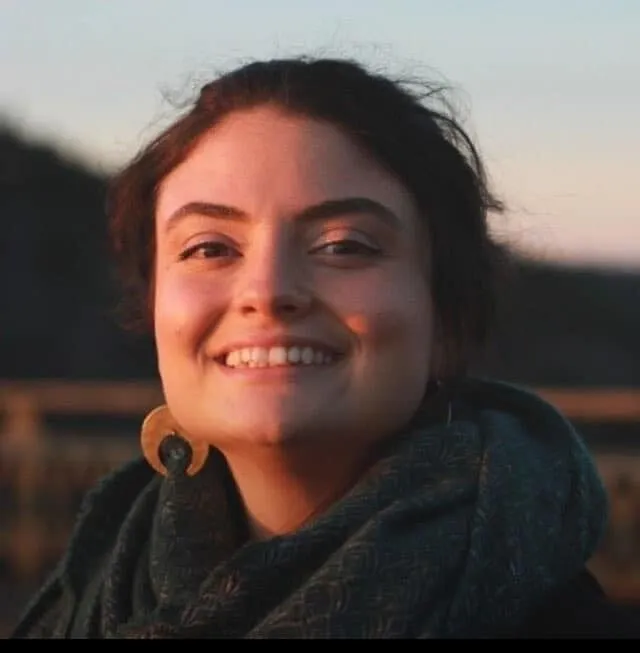Didim-based members of the family of American-Turkish dual-national Ayşenur Ezgi Eygi, killed by Israeli troops while participating in a protest against settler expansion in the occupied West Bank have spoken of their devastation of her death.
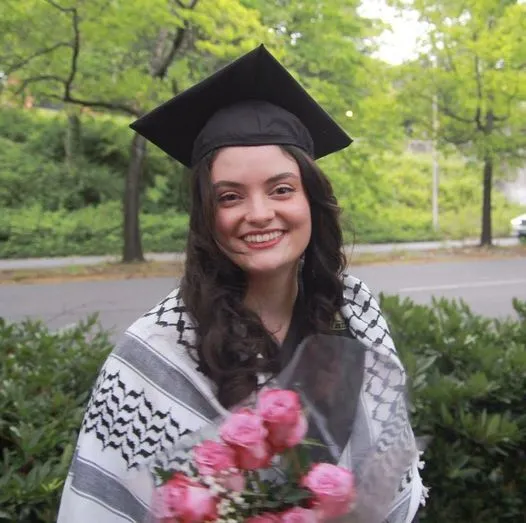
Ayşenur, a 26-year-old volunteer with the anti-occupation International Solidarity Movement, died in hospital on Friday after being shot in the head during a protest in Beita, near Nablus, the Palestinian news agency Wafa reported.
The United Nations has called for an investigation into the killing of Ayşenur, while The White House has announced that an investigation has been requested from the Israeli government regarding the incident.
It is understood that she had been in Didim several days ago on a visit to the resort where her uncle Yılmaz Eygi. It is understood that her family also has a home in Didim.
It was learned that Ayşenur was born in Antalya in 1998, but the area she was registered in was Demirciler neighborhood of Nazilli, Aydın. Her family – including her parents father Mehmet Suat Eygi and mother Rabiye Eygi – had settled in America 25 years ago when Ayşenur was only 1 year old at the time.
Living in Seattle, Washington, USA for a while, Eygi completed a double major at the University of Washington. Eygi completed her major in Psychology and Middle Eastern Languages and Culture in June 2024. She arrived in the West Bank to volunteer with the ISM, supporting Palestinian farmers.
Members of the district protocol have paid a condolence visit to her uncle Yılmaz Eygi, as well as other members of the family, including her 96-year-old grandfather.
Her uncle, who stated that he was deeply saddened by her death, said, “My neice was in Didim days ago. We are all very sad.”
Yılmaz Eygi, who hung Turkish flags on the building where the house is located, made a statement to the AA correspondent. Eygi, said that her niece frequently came to the town to visit relatives.
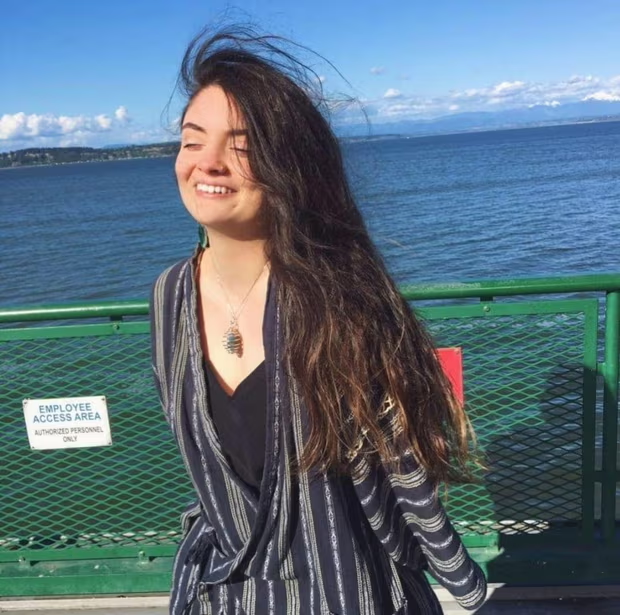
Eygi stated that she last visited them in Didim 15 days ago and returned to Istanbul after visiting relatives in Muğla and Antalya. She said: “From there, she said she would go to Jordan for the UN meeting. She did not tell us that she would go to Palestine. Maybe she did not tell us because we would object.”
Explaining that his niece was a person sensitive to the oppression all around the world, Eygi said: “She was someone who thought very differently than us in terms of humanity. Not only here, she also went to Myanmar in the past for the massacre of Muslims in Arakan. She went to Italy last year for the refugees there. Wherever there was a need, she would go there voluntarily.”
Eygi stated that he spoke to his brother on the phone yesterday and that he said that they were planning to bury the body in Didim.
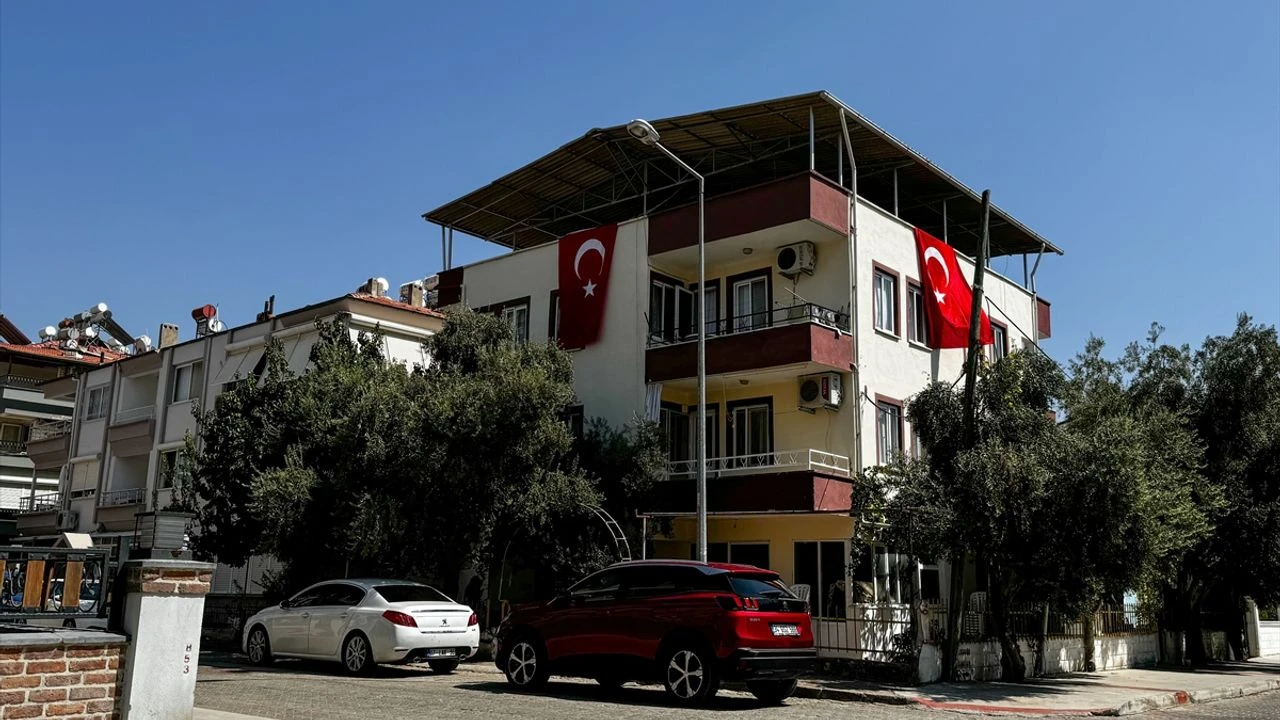
Foreign Ministry spokesman Öncü Keçeli said that Eygi’s family will decide where her body will be buried, and that if a decision is made to bury her in Turkey, the Turkish Foreign Ministry will handle the consular affairs.
Keçeli noted that in similar cases, autopsies are usually performed by local authorities and that they anticipate that a similar procedure will be carried out again, and that the funeral transportation process can take 2-3 weeks.
“A U.S. citizen, Ayşenur was peacefully standing for justice when she was killed by a bullet that video shows came from an Israeli military shooter. We welcome the White House’s statement of condolences, but given the circumstances of Ayşenur’s killing, an Israeli investigation is not adequate,” the family stated.
Eygi’s family expressed their shock and grief, describing her as “strong, beautiful, and nourishing,” likening her to the “olive tree she lay beneath where she took her last breaths.”
“She felt a deep responsibility to serve others and lived a life of caring for those in need with action. She was a fiercely passionate human rights activist her whole life-a steadfast and staunch advocate of justice,” the family said.
“We call on President Biden, Vice President Harris, and Secretary of State Blinken to order an independent investigation into the unlawful killing of a U.S. citizen and to ensure full accountability for the guilty parties,” they added.
Her family emphasized her dedication to advocacy, recalling her active participation in student-led protests for human dignity and her mission to stand in solidarity with Palestinian civilians facing repression.
The statement, which reported that Eygi was killed by a bullet fired by an Israeli army sniper in the footage of the incident, said, “No matter what, from that distance neither Ayşenur nor anyone else could have been perceived as a threat. Ayşenur was brutally killed.”
The statement emphasized that Eygi was a compassionate, courageous and extremely passionate human rights activist, and that he called for an end to violence against Palestinians during demonstrations in support of Palestine at universities.
The statement noted that Eygi, a much-loved daughter, sister, wife and aunt, had her life “unnecessarily, unlawfully and violently taken” by the Israeli army.
The family asked the public for privacy as they “grieve and try to make sense of the unimaginable tragedy that is Ayşenur’s killing”.
U.S. Secretary of State Antony Blinken stated that Washington will “act as necessary” in response to Israel’s killing of an anti-occupation activist. We deplore this tragic loss,” Blinken told reporters during a visit to the Dominican Republic.
President Recep Tayyip Erdoğan and the Foreign Ministry condemned the murder of Turkish-American activist. In a message posted on X, the president expressed strong condemnation for Israel’s “barbaric” response to the anti-occupation demonstration in the West Bank.
Erdoğan stated that Türkiye will continue to hold Israel accountable for its war crimes, genocide, and occupation policy, which has resulted in the deaths of at least 41,000 innocent people over the past year.
“We have learned with deep regret that our citizen Ayşenur Ezgi Eygi has been killed by the Israeli occupation forces in Nablus, West Bank,” the ministry announced in a press release.
“I begged her not to go, but she had this deep conviction that she wanted to participate in the tradition of bearing witness to the oppression of people and their dignified resilience,” said Aria Fani, a professor of Middle Eastern languages and cultures at the University of Washington (UW) in Seattle, which Eygi attended. “She fought injustice truly wherever it was.”
Fani, who had become close with Eygi over the last year, spoke to the Guardian on Friday afternoon, hours after news of her death sparked international outrage.
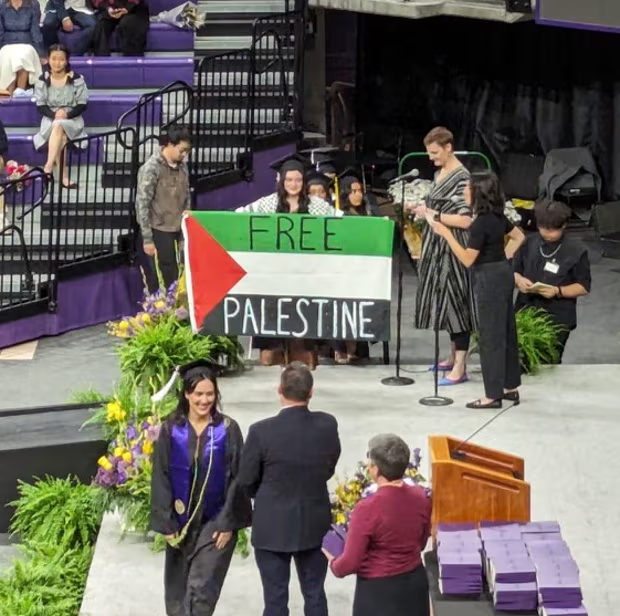
Eygi was volunteering with the anti-occupation International Solidarity Movement when Israeli soldiers fatally shot her, according to Palestinian officials and two witnesses who spoke to the Associated Press.
Two doctors told the AP she was shot in the head. The Israel Defense Forces (IDF) has said it was investigating a report that troops had killed a foreign national while firing at an “instigator of violent activity”, and the White House has said it was “deeply disturbed” by the killing and called for an inquiry.
When Eygi, who leaves behind her husband, graduated from UW,she walked the stage with a large “Free Palestine” flag during the ceremony, Fani said.
The professor said the two met when he was giving a guest lecture in a course on feminist cinema of the Middle East and he spoke of his own experience protesting in the West Bank in 2013.
“I had no idea she would then be inspired to take on a similar experience,” he said, recounting how she reached out to him for advice as she prepared to join the International Solidarity Movement. “I tried to discourage her, but from a very weak position, since I’d already done it myself. She was very, very principled in her activism in this short life that she lived.”
In her final academic year, she devoted significant time “researching and speaking to Palestinians and talking about their historical trauma”, Fani said. “She was incredibly well-informed of what life was like in the West Bank. She was not a naive traveler. This experience was the culmination of all her years of activism.”
The professor told the Guardian: “She was so easy to talk to and truly an embodiment of the meaning of her name, Ayşenur, which is ‘life and light’. She was just an incredibly beautiful person and good friend and the world is a worse place without her.”
